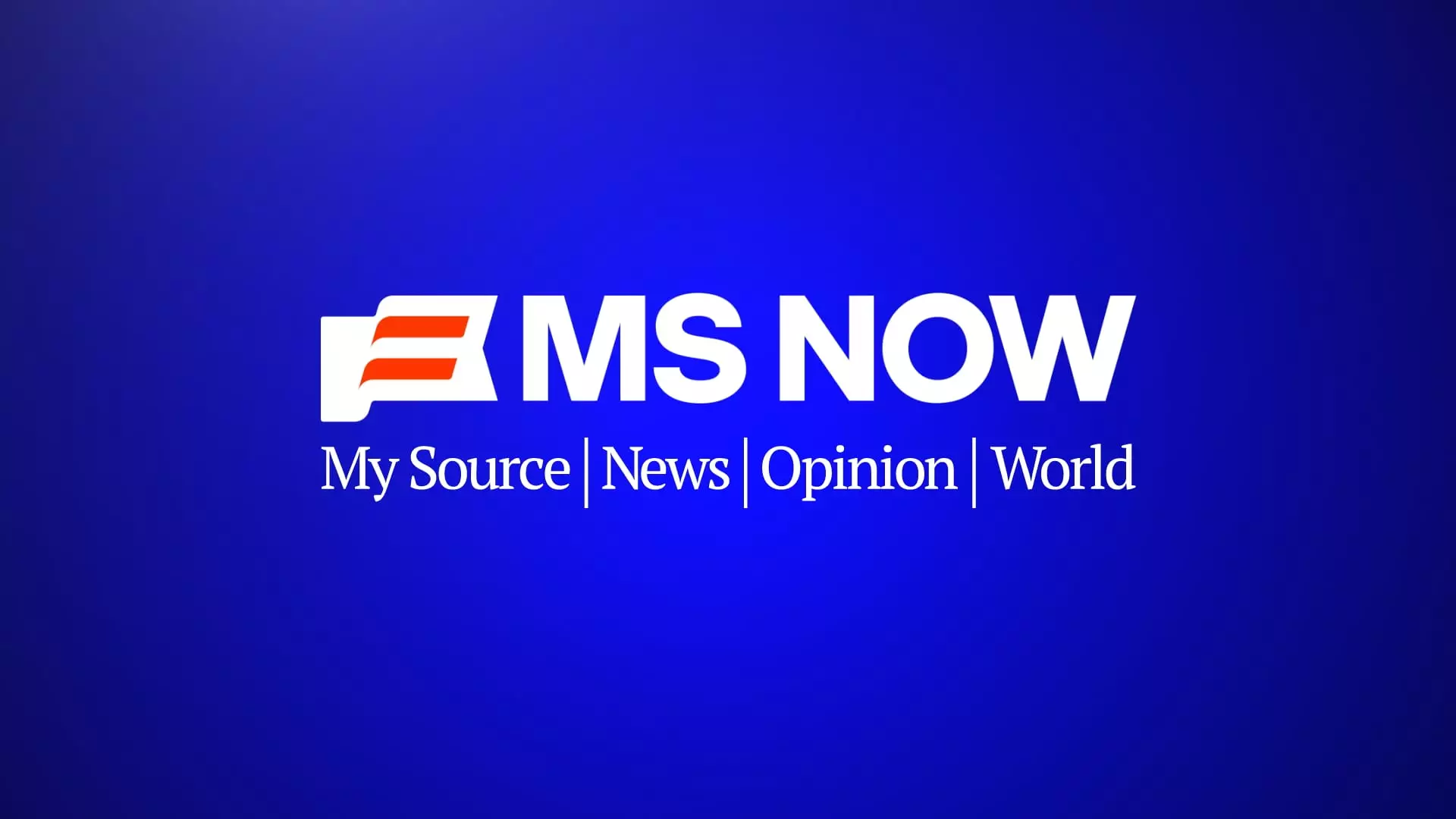In a move that surprises many and raises eyebrows across media corridors, MSNBC is preparing to shed its iconic peacock logo and change its name—an unprecedented step in its three-decade history. While executives insist this is merely a strategic rebranding aligned with corporate restructuring, the decision carries echoes of deeper issues that threaten to either elevate the network’s independence or dilute its brand identity. From a center-right perspective, this shift appears as a calculated effort to recast MSNBC as a more impartial, viewer-focused outlet, distancing itself from the perceived liberal bias that has long characterized its coverage. Yet, the true implications extend beyond branding; they touch on fundamental questions of trust, political neutrality, and market positioning in an increasingly polarized media landscape.
This renaming effort, which will see MSNBC become “My Source News Opinion World” or “MS Now,” is more than superficial. It symbolizes a deliberate attempt to craft a new identity amid ongoing corporate restructuring. Chief Executive Mark Lazarus emphasized that the change serves to sharpen the distinction from NBC News, yet many insiders wonder whether this is a strategic attempt to soften its partisan image or a shallow marketing ploy to attract a broader, more neutral audience. It’s a gamble that could either reposition MSNBC as a serious, fair-minded news outlet or portray it as a brand desperately trying to reinvent itself amid declining ratings and a polarized viewership.
The Politics of Reinvention: A Double-Edged Sword
Political orientations play a key role here. Traditionally viewed as a liberal-leaning network, MSNBC’s brand identity has been a rallying point for progressive viewers but a magnet for criticism from centrist and conservative audiences. By changing its name and logos, the network signals a desire to present a more neutral front—perhaps an attempt to broaden its appeal or repair its reputation in a climate where media bias accusations are pervasive. However, this rebranding may backfire: viewers loyal to its established identity could see the departure from the peacock emblem and the new name as a betrayal or an erosion of authenticity.
For a center-right wing liberal stance, this move can be viewed as pragmatic. It recognizes that to stay relevant, media outlets must evolve beyond their stereotypes. Rebranding could help MSNBC strip away some of its ideological baggage, making way for more balanced coverage. Yet, it also risks creating confusion and alienating core demographics who value clarity over slick corporate rebranding. The challenge lies in balancing credibility with accessibility, a balancing act that many networks struggle with in this highly divisive era.
Market Realities and Corporate Strategy
Interestingly, the decision also aligns with a broader corporate strategy: positioning Versant, the new parent company, to spin out as a standalone, publicly traded entity. The move to distinguish MSNBC from NBC News accompanies a wider effort to streamline and segment media offerings. This could be an astute economic maneuver, locking in fresh branding and a modernized look that appeals to younger, digitally savvy audiences. Simultaneously, these changes reflect an acknowledgment that cable news, as a business, faces significant headwinds, and legacy brands must adapt or become irrelevant.
However, the shift raises questions about authenticity and audience loyalty. In an era where media credibility is scrutinized more than ever, branding appears as an almost superficial fix without necessarily addressing the substantive issues of bias, misinformation, or political influence. A new logo and name are superficial but do little to alter the content’s nature or its impact on public discourse. For a network that has often walked the line between advocacy and journalism, evolving its identity without addressing core content issues may simply be window dressing—an attempt to disguise decline rather than reverse it.
The Cultural and Political Climate: Will It Work?
Ultimately, whether the rebranding pays off depends largely on how it resonates with viewers and how the network manages to redefine its narrative. The move to launch a national marketing campaign, promising a transformative experience for its audience, suggests an acknowledgment of the need for a fresh approach. Still, history shows that media brands anchored in strong ideological identities face an uphill battle when trying to reinvent themselves.
From a pragmatic standpoint, this is a gamble in an unpredictable landscape. The network might gain some new viewership, but risk losing longtime loyalists who feel betrayed or misled. For a media landscape that teeters on the brink of hyper-partisanship, MSNBC’s bold attempt at neutrality could either be an innovative breakthrough or an unnecessary dilution of its core values. As the company aims to carve out a more independent identity, it must be prepared to confront the inevitable questions about whether its content will genuinely shift or merely undergo cosmetic change.
In the end, this rebranding underscores a larger truth: in the world of political media, image shifts and corporate restructuring reflect deeper struggles over influence, trust, and identity. Whether MSNBC’s new path will foster genuine credibility or simply serve as a smokescreen remains to be seen, but one thing is certain: the media battleground is evolving, and how brands navigate this terrain will shape public discourse for years to come.

